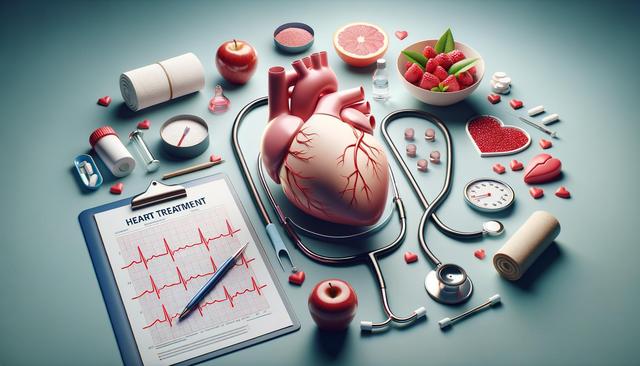Recognizing the Signs and Symptoms of Heart Disease
Heart disease remains a leading health concern across the globe. Early detection plays a critical role in improving outcomes and managing the condition effectively. Understanding the Common Symptoms of Congestive Heart Failure and other related conditions can help individuals seek timely medical attention. Often, people overlook subtle signs, which can delay diagnosis and treatment. Heart Failure Symptoms can vary widely depending on the individual and the stage of the disease.
Some of the most frequently reported symptoms include:
- Shortness of breath during activity or rest
- Fatigue and weakness
- Swelling in the legs, ankles, or feet
- Irregular or rapid heartbeat
- Persistent cough or wheezing
Being aware of What are the Early Signs of Heart Disease can also help in preventing progression. These signs may manifest as chest discomfort, lightheadedness, or even nausea. Identifying these early markers and working with a healthcare provider is key to managing heart health effectively.
Understanding the Stages of Heart Failure
Heart failure is a progressive condition that typically develops over time. Recognizing the Symptoms of 4 Stages of Heart Failure allows for better treatment planning and management. Each stage indicates a different level of severity and guides the approach to care. Stage A includes individuals at risk but without symptoms, while Stage D represents advanced heart failure with noticeable and persistent symptoms.
Here is a simplified breakdown:
- Stage A: No symptoms, but risk factors such as high blood pressure or diabetes are present
- Stage B: Structural heart changes without symptoms
- Stage C: Structural heart changes with symptoms like fatigue or shortness of breath
- Stage D: Severe symptoms even at rest, requiring specialized treatment
Knowing the Sign and Symptom of Heart Failure at each stage can help patients and caregivers make informed decisions. Treatment options typically intensify as the condition advances, and early intervention can slow or even halt progression.
Treatment Options for Heart Disease
Treatment for heart disease varies depending on the type and severity of the condition. Lifestyle changes, medications, and in some cases, surgical interventions are part of a comprehensive treatment plan. Most patients start with lifestyle modifications, such as:
- Adopting a heart-healthy diet
- Engaging in regular physical activity
- Quitting smoking and limiting alcohol intake
- Managing stress effectively
Medications also play a crucial role in managing heart disease, especially in controlling blood pressure, cholesterol levels, and symptoms associated with heart failure. In more advanced cases, procedures like angioplasty or implantable devices may be recommended. Understanding the specific needs of each patient helps in choosing the appropriate treatment approach.
Gender Differences in Heart Disease Symptoms
It is important to recognize that Heart Failure Symptoms in Women may differ from those in men. Women often experience subtler symptoms, which can lead to underdiagnosis or misdiagnosis. For example, women may report fatigue, nausea, and anxiety rather than the classic symptom of chest pain. This makes awareness and education all the more critical.
Common symptoms in women include:
- Shortness of breath
- Unusual fatigue
- Sleep disturbances
- Digestive discomfort
- Jaw or neck pain
Being aware of these variations ensures that women receive timely and appropriate care. Healthcare professionals are increasingly emphasizing the need to consider gender-specific presentations when diagnosing and treating heart disease.
When to Seek Medical Attention
Identifying warning signs early can significantly improve outcomes. Here are 10 Signs of Heart Disease that should prompt immediate medical consultation:
- Chest pain or discomfort
- Shortness of breath
- Fatigue
- Swelling in the lower extremities
- Persistent cough
- Rapid or irregular heartbeat
- Dizziness or fainting
- Nausea
- Cold sweats
- Unexplained weight gain
Understanding the Heart Failure Symptoms and how they evolve over time is vital. If you or a loved one exhibits any of these signs, it is essential to seek medical advice promptly. Timely intervention can help manage the condition more effectively and enhance quality of life.




Leave a Reply